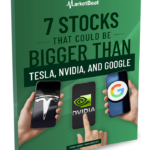<p class="canvas-atom canvas-text Mb(1.0em) Mb(0)–sm Mt(0.8em)–sm" type="text" content="The latest antitrust movement in the United States creates additional risk for Alphabet GOOG/GOOGL and Facebook FB, but we believe this is already priced in, with both stocksfairly valued. Further, we don’t believe investors should be overly concerned about a worst-case scenario.” data-reactid=”12″>The latest antitrust movement in the United States creates additional risk for Alphabet GOOG/GOOGL and Facebook FB, but we believe this is already priced in, with both stocksfairly valued. Further, we don’t believe investors should be overly concerned about a worst-case scenario.
As the 2020 elections approach, politicians, federal agencies, and international lawmakers have begun to investigate Alphabet’s Google, Facebook, and several other Big Tech companies, proposing more stringent enforcement of antitrust laws and some calling for changes to or reinterpretation of existing statutes. However, the consumer welfare interpretation of antitrust law, in place for more than four decades, and recent cases, such as Ohio v. American Express in the U.S. Supreme Court, have set precedents favoring tech companies in general. While other cases, such as the 2011 Microsoft Internet Explorer settlement, do not look favorable, they have created a playbook for tech companies to navigate regulatory scrutiny and prepare for enforcement actions.
Also, several proposed state and federal regulations focus on data privacy and security. We believe Alphabet and Facebook understand the need to improve transparency around their use of data and are well on their way to doing so as they work with European and U.S. regulators.
We expect that the U.S. Federal Trade Commission and the Department of Justice will aggressively enforce the Clayton Antitrust Act to limit Google’s and Facebook’s acquisitions and are likely to impose additional fines on past behavior. We believe there is more uncertainty surrounding Facebook, as it is caught in more of a political upheaval during an election year than Google. Still, even in what we believe is the most plausible downside scenario, which includes fines beyond what we view as reasonable based on previous cases and excessively restrictive regulation that will likely harm consumers, our Alphabet and Facebook fair value estimates decline only 10%-15% versus our base case.
- Despite antitrust and other regulatory uncertainties surrounding Big Tech, we remain confident that Alphabet and Facebook will sustain their competitive advantages. We don’t believe that more fines, fierce enforcement of antitrust laws, or the passing of new ones will allow competitors to overcome the network effects these companies have created.
- The consumer welfare interpretation of antitrust law and some past large antitrust cases have set precedent that can benefit Google and Facebook. The disruptive online platforms that Google, Facebook, and the other Big Techs have created could bring new legal interpretations or the creation of additional agencies to oversee the digital markets, but any changes will take years to implement.
- Politicians are more likely to show support for antitrust laws and their enforcement as 2020 is an election year. Big Tech companies remain under scrutiny by politicians after the 2016 election. Both sides of the political aisle continue to fault Google and Facebook for lacking data privacy and security and for poor content verification and quality management. The dominance of a few Big Techs has also outraged politicians, which could result in growing calls for reinterpretation of or changes to antitrust statutes. Cooler heads are likely to prevail as the election passes and the realities of the challenges inherent in regulating tech companies set in.
- Regulators and politicians continue to focus on data and how it’s used. Google and Facebook are not contesting these efforts, as both are seeking compromise or settlements with agencies and lawmakers. Restrictions on the use of artificial intelligence technology have also begun making the rounds in Europe. At the same time, enforcing data portability and interoperability, which may eliminate barriers to entry for competitors, especially among social networks, is being seriously considered.
- Antitrust enforcement and further regulations pose a threat to one of Google’s and Facebook’s intangible assets, data. However, increased restrictions on data access and usage would apply to all companies, not just the industry giants. These two companies’ large audiences and continuous consumer engagement are likely to continue to drive demand for their ad inventories, although possibly at lower prices in the short term.
- The FTC and DOJ are likely to aggressively enforce the Clayton Act and limit Google and Facebook acquisitions in order to provide newcomers an opportunity to compete effectively. We expect restrictions on mergers and acquisitions to affect top-line growth and push both companies to spend more on research and development.
- Facebook has had more antitrust tendencies than Google. There is more uncertainty and risk associated with U.S. antitrust matters surrounding Facebook. The company is currently caught in the political upheaval during an election year. Plus, because Facebook continues to operate mainly in the social network market, potential acquisitions may be more easily defined as horizontal or anticompetitive.
- The likeliest negative outcome relative to our base-case assumptions for Alphabet and Google is that they will be excessively fined and face regulations. In contemplating this downside scenario, we reach fair value estimates of $1,188 and $191 per share for Alphabet and Facebook, respectively, 15% and 11% below our current fair value estimates of $1,400 and $215.
<p class="canvas-atom canvas-text Mb(1.0em) Mb(0)–sm Mt(0.8em)–sm" type="text" content="Lack of Trust and Concentration of Power Bring Antitrust to Forefront
Given the dominance of large technology companies like Alphabet and Facebook today, regulators and the public are again focused on the impact of such power concentration on competition and consumers. Questions they’re asking include: Have prices increased for consumers and advertisers? Have merging companies increased the quality of their services? Have they taken any actions that violate antitrust laws and illegally restrain competition? Has their dominance stifled growth in innovation? Have they created further barriers to entry via intangible assets such as data and intellectual properties?” data-reactid=”25″>Lack of Trust and Concentration of Power Bring Antitrust to Forefront
Given the dominance of large technology companies like Alphabet and Facebook today, regulators and the public are again focused on the impact of such power concentration on competition and consumers. Questions they’re asking include: Have prices increased for consumers and advertisers? Have merging companies increased the quality of their services? Have they taken any actions that violate antitrust laws and illegally restrain competition? Has their dominance stifled growth in innovation? Have they created further barriers to entry via intangible assets such as data and intellectual properties?
To answer some of these questions, we think the focus will be on current antitrust laws, precedents that some of the major antitrust cases may have set, possible changes in the interpretation of antitrust laws, additional regulatory steps that may be taken at the state and federal levels, and various changes that the companies have already implemented or are planning.
The two companies currently under the heaviest scrutiny are Alphabet (parent company of Google) and Facebook. Google has a 90% market share in search and a 41% global market share in online advertising, displaying dominance in both markets. Facebook currently holds 59% of the social network market, based on the number of users, and is second to Google in online advertising with a 30% share. The two have attained their market standings organically and through acquisitions. Both wide-moat companies have also created and strengthened their network effect and data moat sources, which have created barriers to entry for competitors and barriers to exit for online users. With these two companies’ strong sustainable competitive advantages and further dominance in their markets, government agencies are focusing on Alphabet and Facebook and other Big Tech companies and asking whether they have conducted anticompetitive practices. The agencies and lawmakers could take additional actions that include imposing more fines; changing, creating additional, or increasing the enforcement of antitrust regulations; or even breaking up the two companies. The likeliest scenario is a combination of fines and further regulations, but we don’t believe the impact of these potential actions will materially change our estimated intrinsic values for the companies.

<p class="canvas-atom canvas-text Mb(1.0em) Mb(0)–sm Mt(0.8em)–sm" type="text" content="This information was published March 5 as part of a Communications Services Observer, which is available to Morningstar’s institutional clients.” data-reactid=”39″>This information was published March 5 as part of a Communications Services Observer, which is available to Morningstar’s institutional clients.









